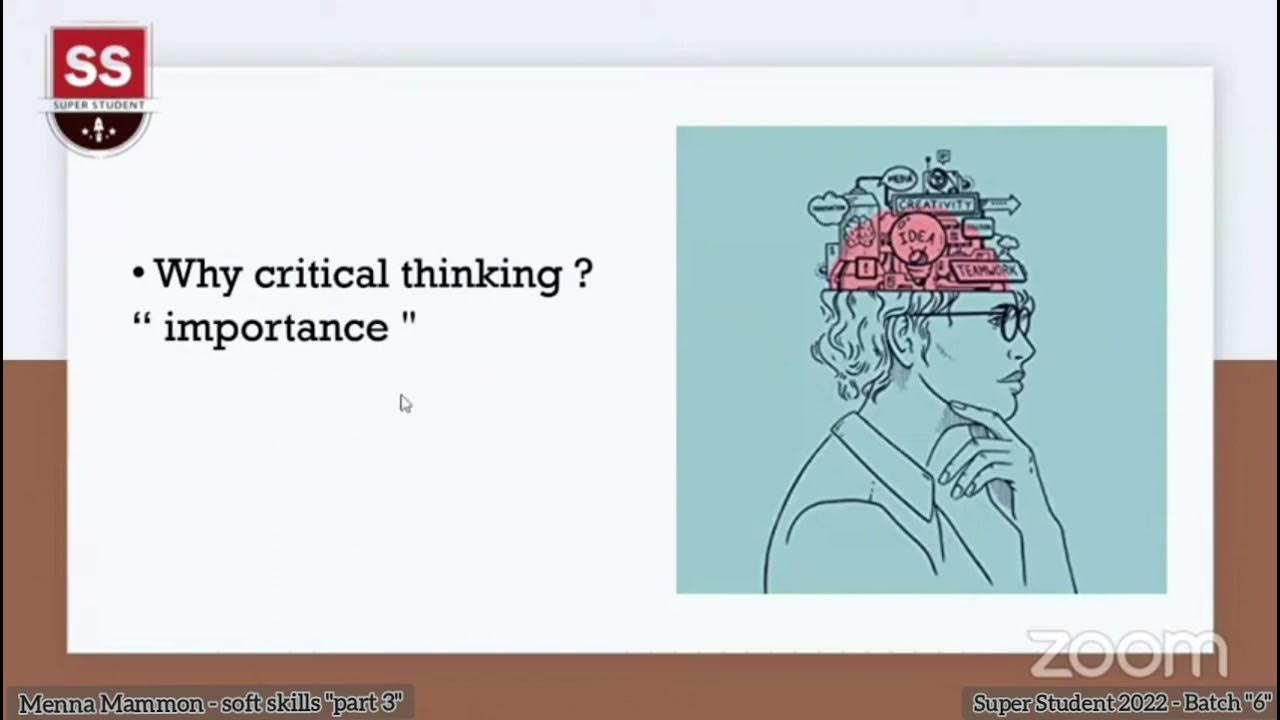Metacognition, Effective Teaching & Learning
Summary
TLDRThis podcast explores the concept of metacognition, or thinking about thinking, and its crucial role in learning and critical thinking. It distinguishes between metacognitive knowledge (understanding cognitive processes) and self-regulation (controlling these processes). The podcast emphasizes teaching students how to learn by promoting metacognitive skills, which are especially beneficial for students with special needs and gifted students. By encouraging critical thinking and self-reflection, students can take control of their learning, make better decisions, and view mistakes as opportunities for growth.
Takeaways
- 🧠 Metacognition involves thinking about thinking, helping individuals understand what they know and don't know.
- 📚 Cognitive processes like thinking, knowing, remembering, and problem-solving are essential for knowledge acquisition.
- 🔍 Metacognition operates on two levels: metacognitive knowledge and self-regulation, both of which are critical for learning.
- ✅ Self-regulation in metacognition allows individuals to control their cognitive activities through planning, monitoring, and evaluating.
- 🎓 Teaching metacognition in classrooms empowers students to take ownership of their learning, moving beyond passive information consumption.
- 🌟 Students with metacognitive skills can link success to effort and strategy rather than luck, building confidence in their abilities.
- ✍️ Metacognition benefits special-needs students by fostering self-organization, while gifted students gain self-discipline through it.
- 💡 Mistakes are essential learning experiences in metacognition, allowing students to grow and improve rather than fear failure.
- 🔄 Critical thinking, closely tied to metacognition, encourages students to analyze, evaluate, and reflect on information instead of taking it at face value.
- 📝 Strategies like planning, activating prior knowledge, and diagramming help promote metacognitive awareness and improve learning outcomes.
Q & A
What is metacognition?
-Metacognition is the awareness and understanding of one's own thought processes. It involves thinking about thinking, knowing what you know, and recognizing what you don’t know.
What are the two levels of activity involved in metacognition?
-The two levels of activity in metacognition are metacognitive knowledge and self-regulation. Metacognitive knowledge refers to the understanding of cognitive processes, while self-regulation involves controlling cognitive activities to achieve a goal.
How can metacognition benefit students in the classroom?
-Metacognition allows students to take control of their own learning, helping them become more engaged and independent learners. It also helps students manage their progress, improving their ability to plan, monitor, and evaluate their learning.
What is the difference between cognition and metacognition?
-Cognition involves mental processes such as thinking, knowing, and problem-solving, while metacognition is the awareness of those cognitive processes and the ability to regulate them.
Why is metacognition important for students with special educational needs?
-Metacognition is important for students with special educational needs as it helps them focus on skills that support organization and monitoring progress, which can improve their learning and comprehension.
How does metacognition help gifted and talented students?
-For gifted and talented students, metacognition promotes self-discipline and encourages the idea that making mistakes is part of the learning process. This fosters resilience and continuous improvement.
What are some strategies teachers can use to promote metacognition in the classroom?
-Teachers can allocate specific time for planning, reviewing, and evaluation activities, encourage critical thinking, and promote self-awareness of learning processes to foster metacognition in students.
What is critical thinking, and how is it related to metacognition?
-Critical thinking is the process of analyzing, evaluating, and improving one's thinking. It is closely related to metacognition because both involve reflection, questioning, and deeper analysis of cognitive processes.
How can students develop better metacognitive skills?
-Students can develop metacognitive skills by slowing down their thinking to reflect, activating prior knowledge before starting new tasks, using diagrams to organize information, and highlighting key concepts when reading.
Why should teachers emphasize metacognition in education?
-Teachers should emphasize metacognition because it helps students become more effective learners by making them aware of how they learn, encouraging self-regulation, and helping them apply strategies to improve their learning outcomes.
Outlines

This section is available to paid users only. Please upgrade to access this part.
Upgrade NowMindmap

This section is available to paid users only. Please upgrade to access this part.
Upgrade NowKeywords

This section is available to paid users only. Please upgrade to access this part.
Upgrade NowHighlights

This section is available to paid users only. Please upgrade to access this part.
Upgrade NowTranscripts

This section is available to paid users only. Please upgrade to access this part.
Upgrade NowBrowse More Related Video

Learn More: Thinking About Your Thinking

7.3 ازاي استفيد من التفكير النقدي

Metacognition | Thinking About Thinking | Science of Learning Series

Can We Improve Our Brain? Neuroplasticity & Integrative Health | CECILIA FERNANDES | TEDxGreensboro

Beda Design Thinking, Critical Thinking &Creative Thinking | CIAS QuickFix with Dr. Indrawan Nugroho

Pra LDK - (3) Berpikir Kritis
5.0 / 5 (0 votes)